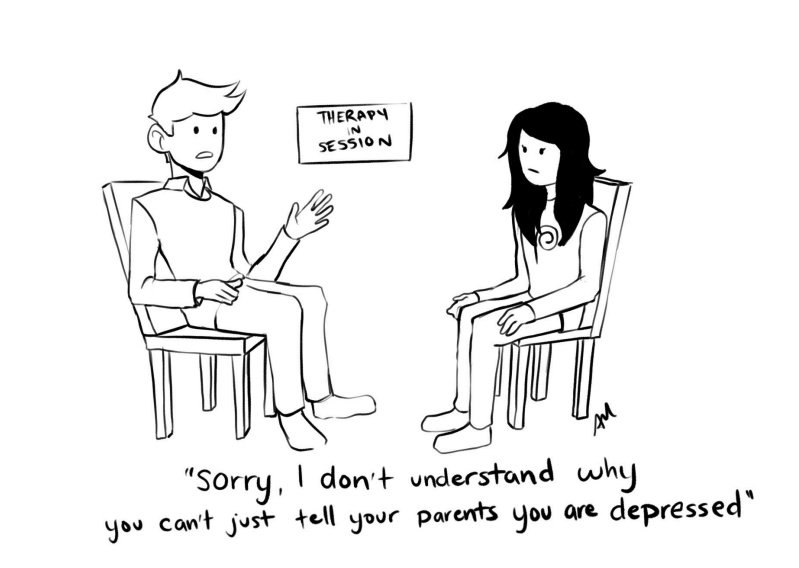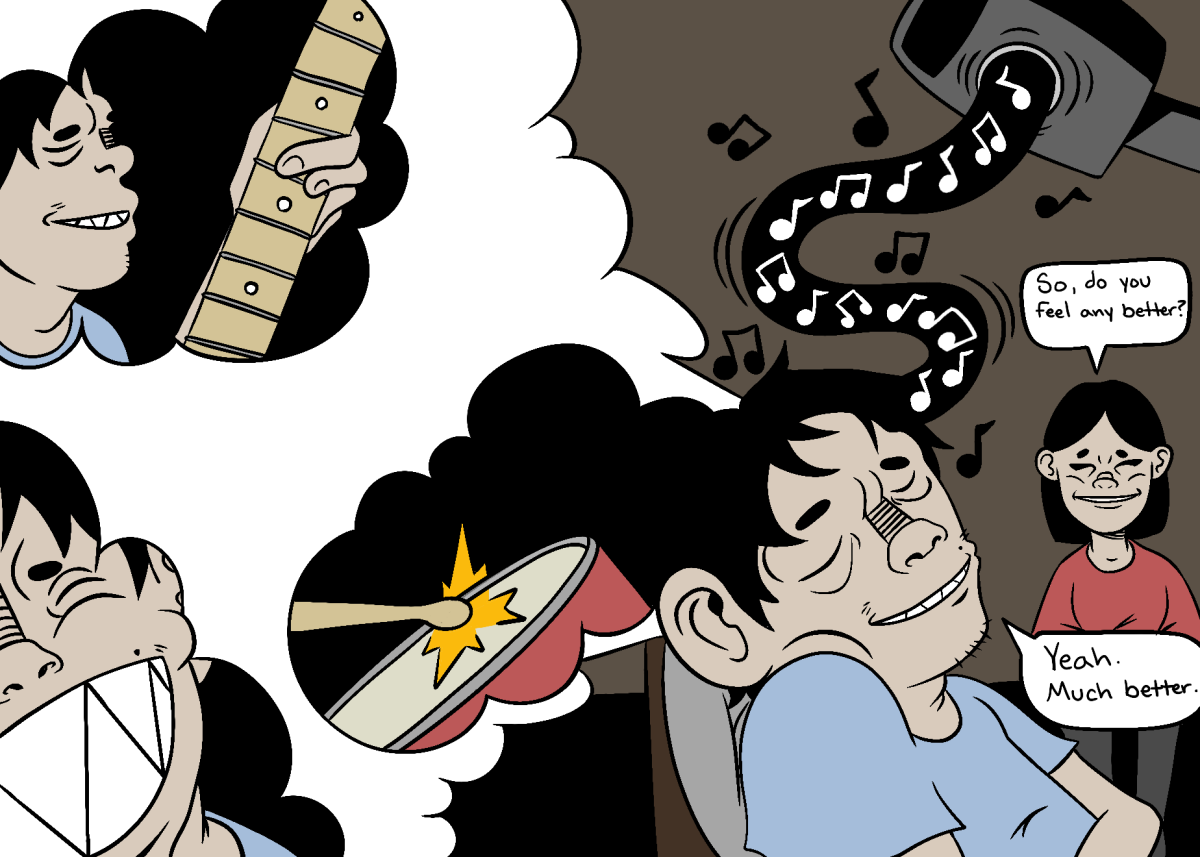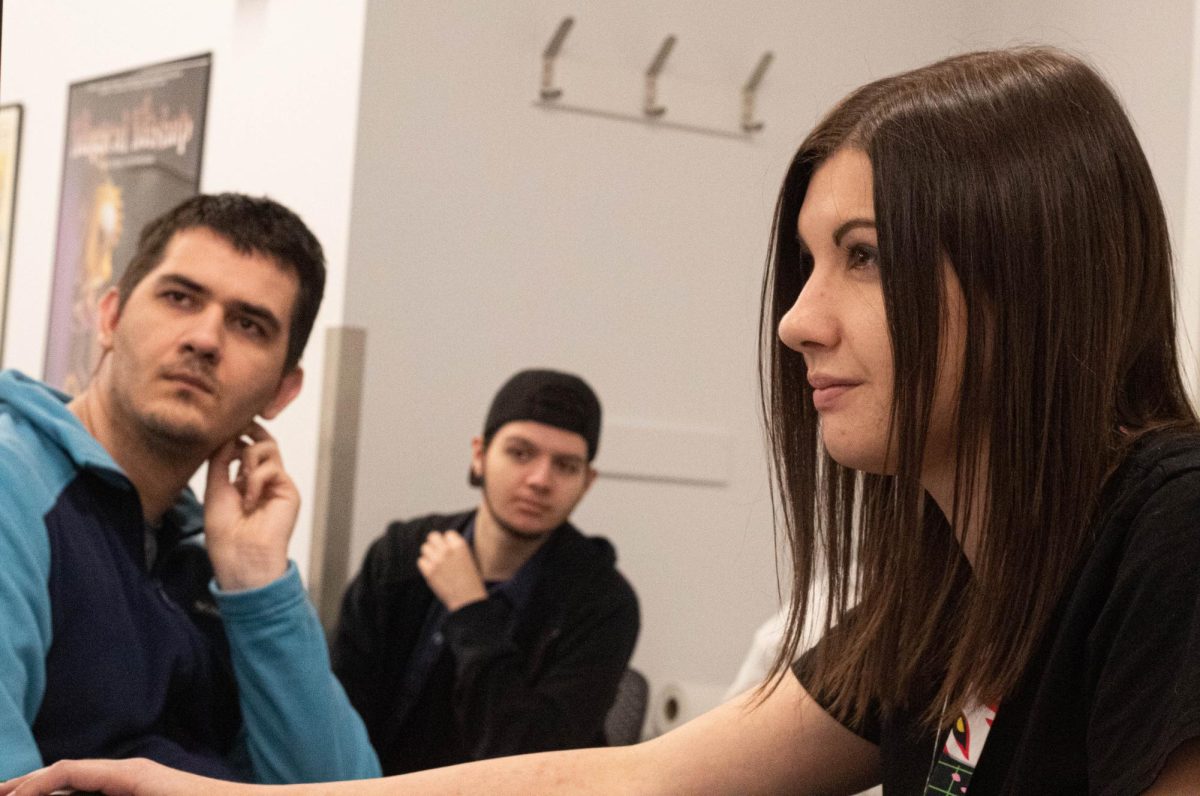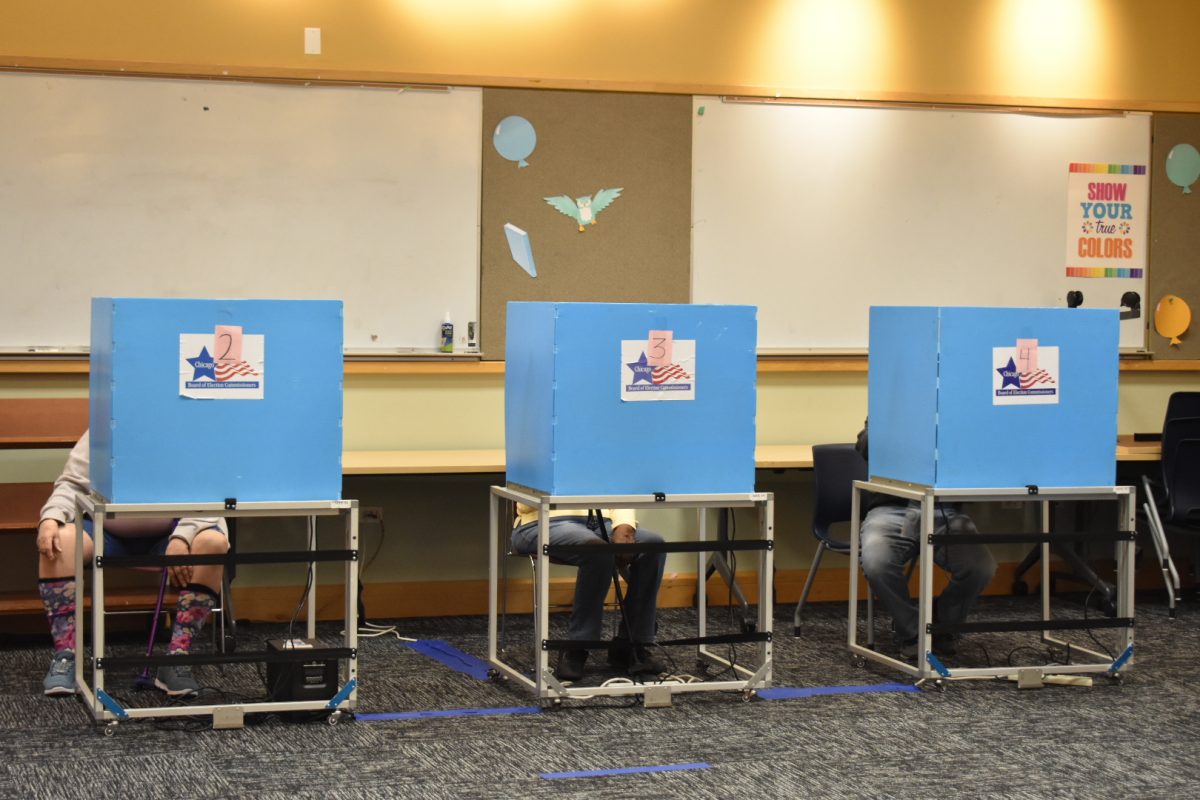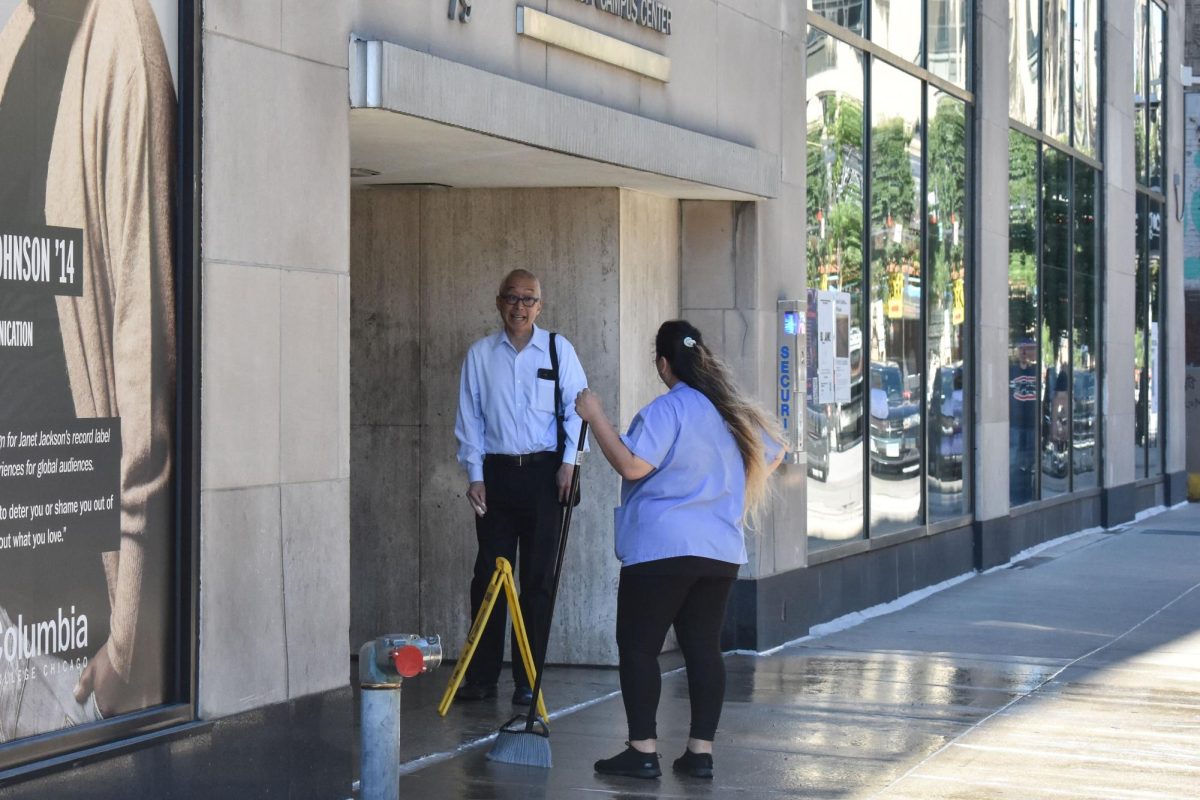MENTAL HEALTH ISSUE
Kaidyn Carter moved to Chicago as a first-year Columbia student without a job and not enough scholarship money to cover her tuition and living expenses.
Now a junior communication major, Carter remembered what was going through her head that first year when her bill was due.
“Knowing if I don’t pay this portion of my Columbia balance at this date they’re gonna kick me out of my house is a little bit concerning, especially since I don’t have family in Chicago either,” Carter said. “I just go to school here, so if they revoke my housing, I’d be homeless and that’s really scary.”
Carter isn’t alone.
In a recent survey, 67% of Columbia students who responded expressed concerns about meeting their current monthly expenses, especially as tuition has increased – 20% in the past three years by next fall.
In the survey, students identified specific areas where financial constraints necessitated cutbacks, with the top categories being personal purchases (86%), clothing (68%), socializing (65%), and high-quality or preferred food (62%).
“Every year tuition just increases and my scholarship is staying the same. I make the same amount of money at work, and then take the same amount of classes,” Carter said. “It kind of is like we’re raising this and I’m getting more stressed out, but what are we doing about it?”
Student Persistence Assistant Director Elizabeth Fuertes said it is not uncommon for students to “grapple with extenuating circumstances at some point during their college journey.”
“We understand that such challenges can be accompanied by a host of emotions, such as anxiety or shame,” Fuertes said. “However, students are not alone. We all work at Columbia because we are invested in student success and want to see our students thrive.”
Carter said she had to adjust her daily eating and living habits in order to comfortably meet her monthly tuition payments in addition to her rent, things like going out on the weekends “completely stopped.”
“Sometimes, whatever food I have in my apartment I just live off of that up until I kind of get a little wiggle room. That can be two weeks, sometimes it can be four without going to the grocery store,” Carter said. “But that’s kind of just life, I guess.”
Carter said she reached out to the student persistence peer support program but ended up feeling like “there was nobody behind the screen.”
Junior communication major Jesse Gonzales said they appreciate the college’s number of resources for both financial aid and mental support, but they wish that it was advertised more.
“I feel like the school doesn’t really promote it as much as it should,” Gonzalez said. “For someone who doesn’t really check their emails as well as much, it always feels like my chances are that my resources are all narrowed down or little.”
The Fall 2023 survey, which had 1,122 responses, assessed the total cost students are required to cover from on and off-campus housing to living expenses.
- In the survey, 48% of respondents expressed confidence in managing their finances, while 67% expressed concerns about meeting their current monthly expenses.
- Students reported average monthly expenditures of $697 on housing, $262 on food, $81 on transportation, and $146 on personal items in addition to an estimated $210 per semester for books and educational supplies.
- 45% of students admitted that their financial circumstances had negatively affected their academic performance
- The survey also reported that on-campus students were more inclined to cut back on food expenditures compared to their off-campus counterparts
Coordinator of Equitable Student Success Chloe Nailor works with students enrolled in the Scholars Project program to provide connections to resources, skills and mentorship and primarily serves first-generation and BIPOC students.
“Dealing with financial challenges during college can be very frustrating. I want to commend students for showing up and doing their best even during these challenging times,” Nailor said.
TRIO Student Support Services is a federally funded program offered at the college that serves first-generation students, income-eligible students and students who have disabilities and is meant to provide support that not only promotes the well-being of students but also “assist them toward achieving personal and academic goals,” TRIO project advisor Elizabeth Rodriguez said in an email to the Chronicle.
“A big part of what TRIO does is that we holistically advise students,” Rodriguez said. “Some students just come to us to talk and have someone to listen. It’s a very fulfilling position and I know the students appreciate it too.”
Rodriguez said she mostly gets students who come to her for help with finding scholarships, funding tuition and career prep.
Fuertes said she often hears from students who are unable to afford required resources for their classes, such as web-based courseware and consumable supplies like photo paper, paint and so on.
“I recognize that difficult financial circumstances can impact students in all areas of life,” Fuertes said. “My personal experience involved being a first-gen student with an EFC of 0. While I struggled with basic needs while I was in school, that experience now enables me to help support students who find themselves in similar circumstances.”
Senior animation major Ashantiana Jones said most of her stress comes from the consistent rise in tuition and struggles coming up with the money between payments.
“It’s hard,” Jones said. “It’s hard to find a job. It’s hard to find employment at Columbia.”
Gonzalez, who transferred from community college last semester, said the higher tuition payments were a rough transition.
“Community college wasn’t that expensive, I knew I could take care of it,” Gonzalez said. “But when I saw that first bill for Columbia, I was like, ‘I need to think of fast cash.’”
Aside from some help from scholarships and some federal student aid, Gonzalez is paying to attend Columbia entirely themselves.
For Gonzalez, their financial situation following last semester’s historical strike has only become more stressful and said that the tuition credits issued by the college felt like “a Band-Aid to a broken heart.”
Sophomore broadcast journalism major Jenaya Banks said the current financial situation at the college has led to “tense, sensitive” conversations among peers.
“Even talking to people in class asking where they’ll be staying next year, I’ll think, ‘Oh, I shouldn’t have asked that’ because everybody is in a different situation,” Banks said.
Banks said the college’s recent changes in the housing process had added to her stress level and left her feeling unprepared. The Dwight Lofts, where Banks currently lives, will be reserved for first-year students next year.
“I was excited to go back to the Dwight where I’ve always been, but they just announced that it’ll be unavailable to me all of a sudden, it really threw me off,” Banks said. “I have no set-in-stone plan for next year.”
As for Carter, she appreciates that she can reach out to family for help, which she has done. But she knows not all students can do that.
“I would just genuinely be hungry and have to kind of reach out to my family a little bit more, which is kind of embarrassing because going to school was my decision as an adult and I wanted it to be something that I was doing,” Carter said. “Thankfully, I have a good family who doesn’t really mind helping me, but I think about other students who don’t necessarily have that.”
Copy edited by Vanessa Orozco










